A CABINET  OF
OF  GREEK CURIOSITIES
GREEK CURIOSITIES
A CABINET  OF
OF  GREEK CURIOSITIES
GREEK CURIOSITIES 
STRANGE TALES
AND
SURPRISING FACTS
FROM THE
CRADLE OF WESTERN CIVILIZATION

J. C. MCKEOWN


Oxford University Press is a department of the University of Oxford.
It furthers the Universitys objective of excellence in research,
scholarship, and education by publishing worldwide.
Oxford New York
Auckland Cape Town Dar es Salaam Hong Kong Karachi
Kuala Lumpur Madrid Melbourne Mexico City Nairobi
New Delhi Shanghai Taipei Toronto
With offices in
Argentina Austria Brazil Chile Czech Republic France Greece
Guatemala Hungary Italy Japan Poland Portugal Singapore
South Korea Switzerland Thailand Turkey Ukraine Vietnam
Oxford is a registered trade mark of Oxford University Press
in the UK and certain other countries.
Published in the United States of America by
Oxford University Press
198 Madison Avenue, New York, NY 10016
Oxford University Press 2013
All rights reserved. No part of this publication may be reproduced,
stored in a retrieval system, or transmitted, in any form or by any means, without the
prior permission in writing of Oxford University Press, or as expressly permitted by law,
by license, or under terms agreed with the appropriate reproduction rights organization.
Inquiries concerning reproduction outside the scope of the above should be sent
to the Rights Department, Oxford University Press, at the address above.
You must not circulate this work in any other form
and you must impose this same condition on any acquirer.
Library of Congress Cataloging-in-Publication Data
McKeown, J. C.
A cabinet of Greek curiosities: strange tales and surprising
facts from the cradle of western civilization /J.C. McKeown.
pages. cm.
Includes bibliographical references and index.
ISBN 978-0-19-998210-3 (alk. paper)
1. GreeceSocial life and customs. 2. GreeceCivilization. I. Title.
DF78.M35 2013
938dc23 2012036875
1 3 5 7 9 8 6 4 2
Printed in the United States of America
on acid-free paper
For Jo
sine qua non

I have to report what is said, but I do not have to believe it all without discrimination (Herodotus Histories 7.152).
People believe what is either true or probable; therefore, if they believe something that is implausible and not probable, it must be true, for it is not its probability or plausibility that makes it seem true (Aristotle Rhetoric 1400a).
The only people who are skeptical about wonders are those who have not had anything wonderful happen in their own lives (Pausanias Guide to Greece 10.4).
Someone I know who had spent a great part of his life immersed in reading gave me a book that he himself had written, packed with information amassed from a wide and varied range of abstruse texts. I took it eagerly and shut myself away to read it without interruption. But, my God, it was just a collection of curiosities! I lost no time in returning it to its author (Aulus Gellius Attic Nights 14.6).
CONTENTS
PREFACE
T HE ANCIENT Greeks were a wonderful people. They gave the Western world democracy and drama, and many forms of art and branches of science would be inconceivable without them. The safest general characterization of the European philosophical tradition is that it consists of a series of footnotes to Plato may be a slightly unsafe overstatement, but the abiding influence of Greek philosophy is undeniable. Who can even speculate what our lives would be like without the improbable victories at Marathon and Salamis?
The idea that the Greeks were a wonderful people has always been with us, for they were not shy about asserting their own special status in the world: they were Hellenes, and everyone else was a barbarian, a term that usually carried negative connotations. Greece had the great good fortune to remain more or less intact when it was absorbed into the empire of a people with a massive and, at least in the early generations after the conquest, well-deserved inferiority complex about intellectual and artistic matters. The Greeks therefore had no difficulty preserving their high opinion of themselves, and they would be gratified by the still prevailing tendency to idealize them. This tendency comes not just from our admiration for what they actually achieved, but also from a desire to create a past utopia in which things were better than they are now. This was the Greece imagined by the romantic movement that dominated European thought in the 18th and 19th centuries. J. J. Winckelmann, the father of modern classical archaeology and a towering figure in that movement, saw no need to set his wonderful Greeks in context by actually visiting Greece. Wilhelm von Humboldt, the Prussian minister of education early in the 19th century, caught the spirit of the age perfectly when he declared that if every other part of history enriches us with its human wisdom and human experience, then from the Greeks we take something more than earthlysomething almost godlike. Such was the vision that inspired Lord Byron to fight and die for Greek freedom in the 1820s.
Idealism held sway unchallenged for far too long. Eventually Ulrich von Wilamowitz-Moellendorff, perhaps the greatest of the early modern Greek philologists, was moved to complain: I once heard a prominent scholar regret that these papyri [Greek Magic Papyri] were found, because they deprive antiquity of the noble splendor of classicism. He (sc. UvW) added, They unarguably do so, but I am glad of it. For I dont want to admire my Greeks, I want to understand them, so that I can judge them properly. Wilamowitz was standing up for truth against the imaginative exploitation of the classical past by such luminaries as Nietzsche and Wagner (adhered to by Adolf Hitler, who maintained that the Hellenic ideal of culture must remain preserved for us in its paradigmatic beauty). The thoroughly unscholarly regret expressed by Wilamowitzs prominent scholar resonates back to antiquity. In the heyday of their intellectually vibrant democracy in the 5th century B.C., the Athenians voted to chop off the right thumbs of all their prisoners from Aegina, to brand the Athenian owl on the foreheads of all their prisoners from Samos, and to kill all the male inhabitants of Mytilene; writing more than six centuries later, Aelian wished not simply that the Athenians had not passed such brutal decrees, but that no record had been preserved of their having done so (
Next page

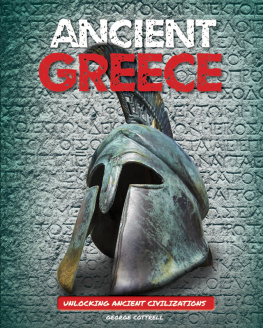
![Michael Lovano - The World of Ancient Greece: A Daily Life Encyclopedia [2 Volumes]](/uploads/posts/book/268736/thumbs/michael-lovano-the-world-of-ancient-greece-a.jpg)
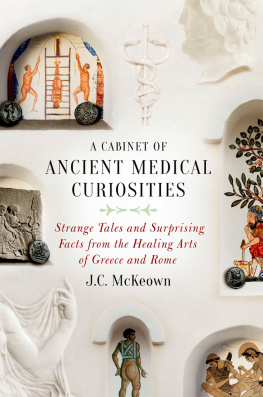

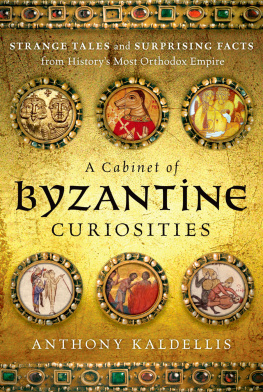
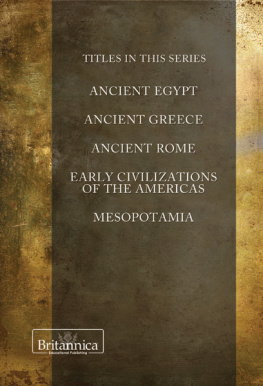
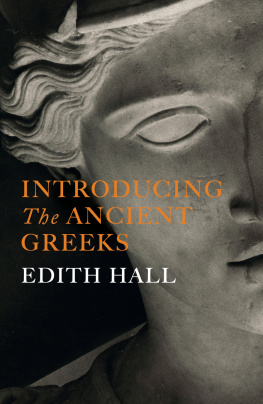
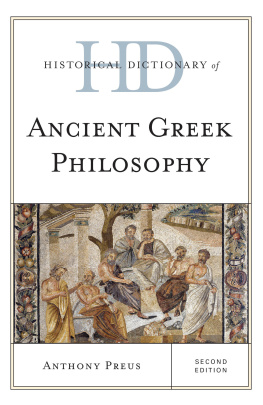

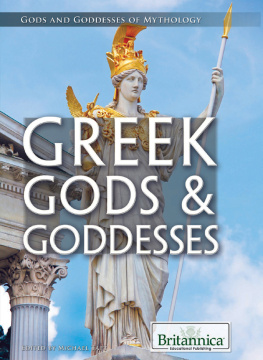
 OF
OF  GREEK CURIOSITIES
GREEK CURIOSITIES


